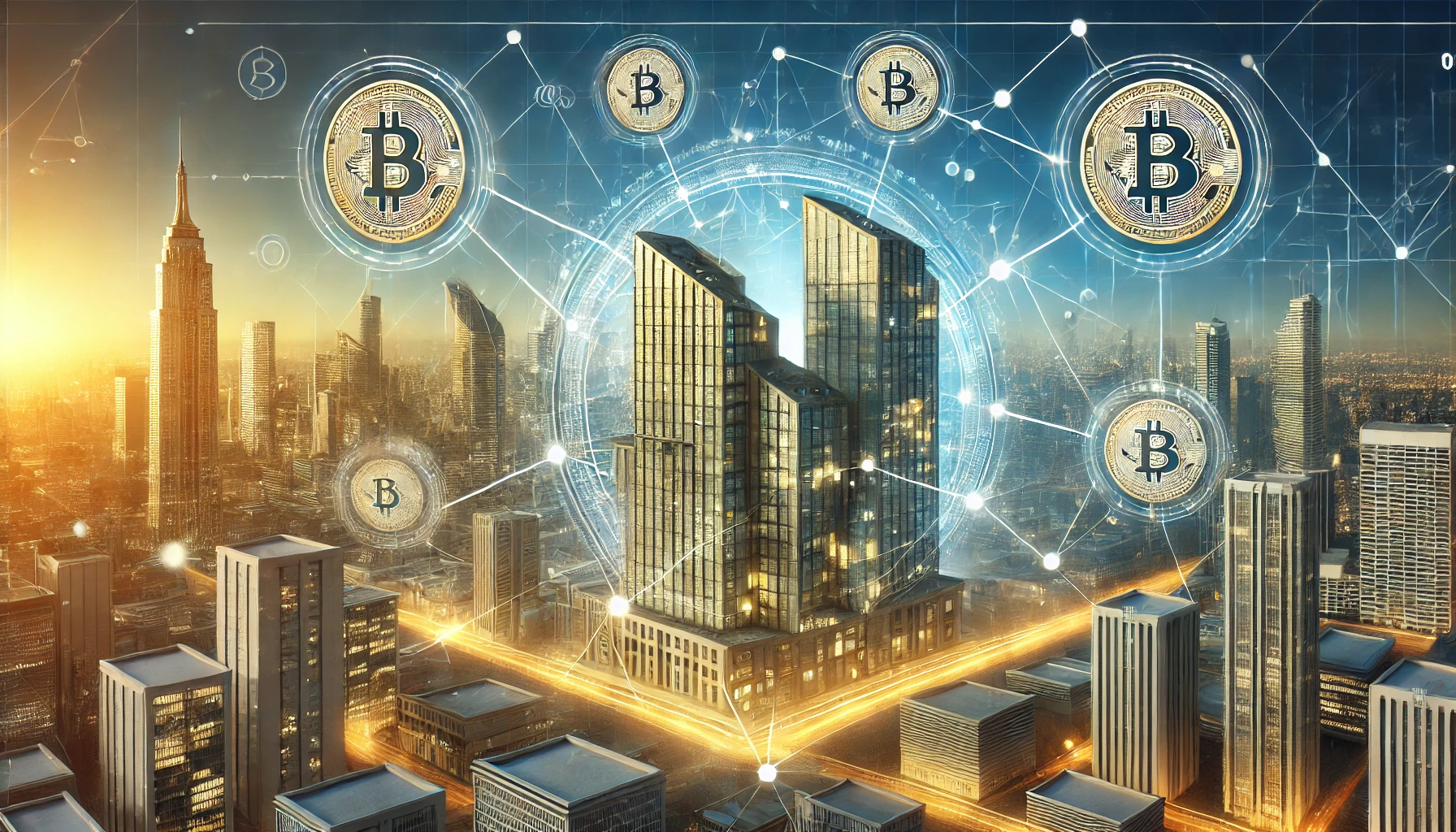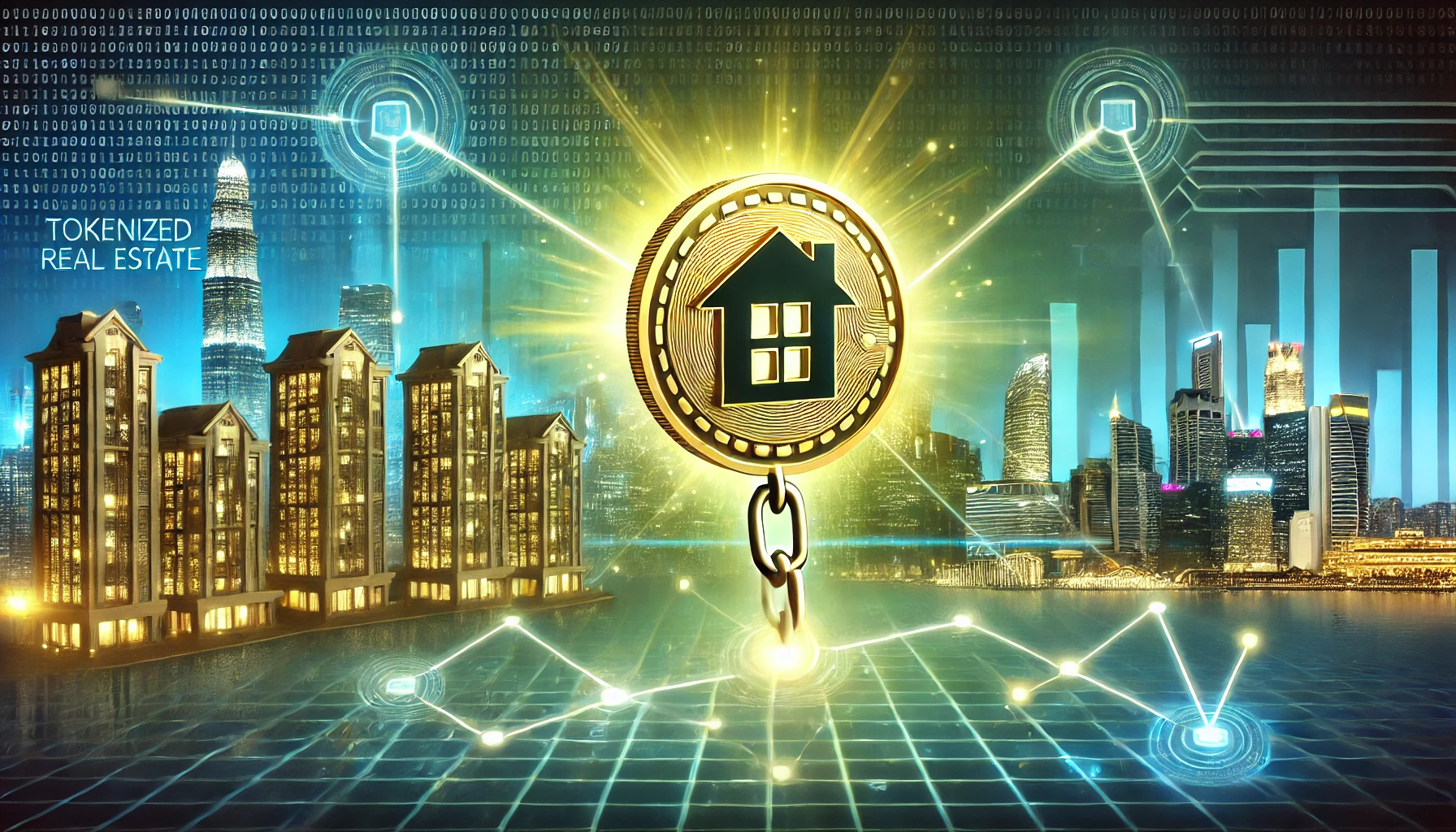 CaryptosHeadlines Media Has Launched Its Native Token CHT.
Airdrop Is Live For Everyone, Claim Instant 5000 CHT Tokens Worth Of $50 USDT.
Join the Airdrop at the official website,
CryptosHeadlinesToken.com
CaryptosHeadlines Media Has Launched Its Native Token CHT.
Airdrop Is Live For Everyone, Claim Instant 5000 CHT Tokens Worth Of $50 USDT.
Join the Airdrop at the official website,
CryptosHeadlinesToken.com
The real estate market has long been associated with high entry barriers, limited liquidity, and cumbersome transaction processes. However, the advent of tokenized real estate is revolutionizing property investment by leveraging blockchain technology to create a more accessible, efficient, and transparent market.
What is Tokenized Real Estate?
Tokenized real estate is the process of converting ownership rights of a property into digital tokens that reside on a blockchain. These tokens represent fractional ownership of the property, allowing multiple investors to collectively own and trade shares in a real estate asset. From residential apartments to commercial office buildings, nearly any type of property can be tokenized.
Through blockchain, tokenized real estate enables global accessibility and democratizes investment, opening the market to smaller investors who may have previously been priced out.
Benefits of Tokenized Real Estate
Tokenization offers a range of benefits that address the traditional pain points of real estate investment:
1. Accessibility
Tokenization lowers the cost barrier by allowing fractional ownership. Instead of purchasing an entire property, investors can buy a share, making real estate investments more affordable. This opens the market to a global pool of participants.
2. Liquidity
Unlike traditional real estate, where transactions are time-consuming and illiquid, tokenized assets can be traded on secondary markets. This provides investors with an exit strategy and enhances liquidity.
3. Efficiency
Blockchain streamlines real estate transactions by automating processes such as property transfers and payments. This reduces administrative overhead and eliminates delays.
4. Transparency
Blockchain’s immutable ledger ensures accurate and tamper-proof record-keeping. This builds trust among investors by providing full transparency.
How Blockchain Enhances Property Investment
Blockchain technology adds value to real estate in several ways:
- Smart Contracts: These self-executing contracts automate transaction processes, ensuring accuracy and security. For instance, rent payments can be automated and distributed to token holders.
- Global Reach: Tokenized real estate eliminates geographical barriers, allowing investors to participate in property markets worldwide.
- Secure Transactions: Cryptographic protocols safeguard transactions from fraud and unauthorized access.


Real-World Applications of Tokenized Real Estate
1. Fractional Ownership Platforms
Platforms like RealT and PropertyToken enable investors to own fractions of high-value properties. These platforms make property investment more inclusive and scalable.
2. Commercial Real Estate
Tokenization is increasingly applied to commercial spaces such as office buildings and retail centers, offering institutional and individual investors an easier entry into lucrative markets.
3. Vacation Rentals and Hospitality
Tokenizing vacation properties allows for shared ownership models, enabling investors to own stakes in luxury vacation homes or hospitality projects.
Challenges in Tokenized Real Estate
Despite its advantages, tokenized real estate faces several challenges:
- Regulatory Hurdles: Laws governing tokenized assets vary across jurisdictions, complicating compliance.
- Market Adoption: Awareness and understanding of tokenization among traditional real estate professionals remain limited.
- Technological Barriers: Developing interoperable and user-friendly platforms is essential for broader adoption.
The Future of Tokenized Real Estate
By 2030, tokenized real estate is expected to become a mainstream investment avenue. Governments and enterprises will play pivotal roles in developing regulatory frameworks and encouraging innovation. Tokenization has the potential to empower small-scale investors and transform global property markets by making them more inclusive and efficient.
Conclusion
Tokenized real estate is redefining property investment, offering unparalleled opportunities for accessibility, liquidity, and transparency. By integrating blockchain in property markets, tokenization allows investors to diversify portfolios and explore innovative ways to participate in real estate. As the technology and regulatory landscapes evolve, tokenized real estate promises to unlock the full potential of digital asset investment in the years to come.












